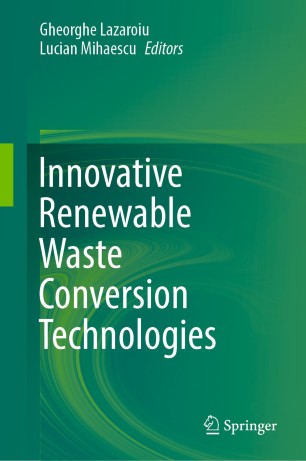A book “Innovative Renewable Waste Conversion Technologies” has been published

We have great news! A book that our experts have been working on for a long time with our Romanian colleagues has been published. We worked on Chapter 12 of the book “Innovative Renewable Waste Conversion Technologies”.
Key issues
This book investigates innovative solutions to increase the share of renewable energy in the global power mix, with a particular focus on improved and sustainable biomass conversion technologies.
You can order the book on the Springer Publishing website. Conveniently, you can purchase the whole book or in separate chapters, choosing the information that interests you most.
Results
- An analysis of the generation mix of renewable energies (including biofuels, renewable waste, and biogas) in the overall power balance of several countries was performed.
- The possibilities of using bioenergy resources in the context of power generation are thoroughly analyzed.
- The important ways of converting biomass into energy, the combustion process is analyzed in detail, highlighting the vast potential for the use of innovative biofuels.
- A detailed classification of existing biofuels is established, reflecting the relationship between their energy properties and their potential use in industrial facilities.
- The most efficient combustion technologies for the respective applications are discussed.
- A detailed classification of available biofuels has been developed, which reflects the relationship between their energy properties and potential use in industrial facilities.
- A detailed classification of available biofuels has been developed, which reflects the relationship between their energy properties and potential use in industrial facilities.
Furthermore, the authors emphasize that the management of renewable waste, both from industry (tannery waste and oils from transport) and agriculture, requires an economic and environmentally friendly approach. The challenges of burning various renewable waste fuels and upgrading industrial facilities are discussed, and the ideas and technologies presented in this book contribute to the UN Sustainable Development Goal (SDG) for “Affordable and Clean Energy”.
Who will benefit from this book?
The book is a useful resource for professionals dealing with current and upcoming activities related to renewable energy combustion, and a good starting point for young researchers.


